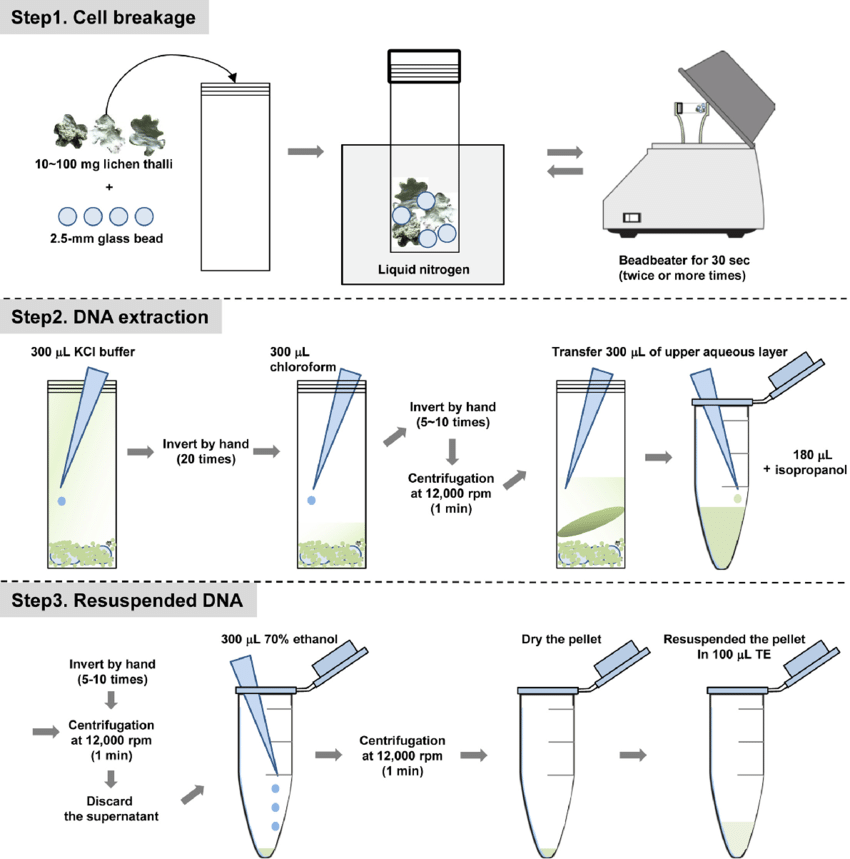Introduction
In molecular biology, DNA extraction is pivotal for genetic analyses. This review evaluates the
Eu-Gen Extraction DNA extraction kit's efficacy, reliability, and applicability in research. DNA isolation from biological samples is crucial for genetic analysis like PCR and sequencing. The chosen method impacts DNA quality, influencing downstream analyses.
The importance of DNA extraction in various fields:
Genetic Analysis: DNA extraction serves as the initial step in a multitude of genetic analyses, including PCR, sequencing, and genotyping. These analyses provide crucial insights into genetic variations, gene expression patterns, and genomic alterations underlying various biological processes and diseases.
Forensic Identification: In forensic science, DNA extraction enables the identification of individuals from biological samples found at crime scenes. The ability to isolate and analyze DNA from sources such as blood, saliva, and hair follicles is pivotal in criminal investigations and judicial proceedings.
Medical Diagnostics: DNA extraction is fundamental in medical diagnostics for detecting genetic disorders, infectious diseases, and cancer. Isolating and analyzing DNA from patient samples facilitates the identification of disease-causing mutations, pathogens, and biomarkers, aiding in diagnosis, prognosis, and treatment decisions.
Biotechnology and Genetic Engineering: DNA extraction is indispensable in biotechnology and genetic engineering for cloning genes, constructing recombinant DNA molecules, and engineering genetically modified organisms (GMOs). The ability to isolate and manipulate DNA molecules enables the development of novel therapeutics, vaccines, and biotechnological products.
Evolutionary Studies: DNA extraction from diverse organisms, including ancient specimens and extinct species, provides invaluable genetic information for evolutionary studies and phylogenetic analysis. Comparing DNA sequences across species and populations elucidates evolutionary relationships, biodiversity patterns, and evolutionary processes shaping life on Earth.
Environmental Monitoring: In environmental science, DNA extraction facilitates the assessment of microbial communities, biodiversity, and ecosystem dynamics in various habitats. Analyzing DNA from environmental samples, such as soil, water, and air, enables researchers to understand microbial diversity, ecological interactions, and the impact of environmental changes on ecosystems.
Assessment of DNA Extraction Kit:
The kit employs proprietary reagents and protocols for rapid cell lysis, DNA binding to silica matrices, and elution of purified DNA. It accommodates various sample types and volumes.
Conclusion:
Overall, DNA extraction is a fundamental technique that underpins a wide range of scientific disciplines, from basic research to applied fields. Its importance lies in its ability to provide access to genetic information encoded within DNA molecules, enabling researchers to address diverse biological questions, solve practical problems, and advance knowledge and innovation in numerous areas of study.
DNA extraction kits, such as those offered by Maxanim , play a vital role in accurately isolating DNA in molecular biology. Their scientific validation and adaptable nature render them indispensable tools for researchers.
Learn the basics of how DNA can be extracted from cells.
